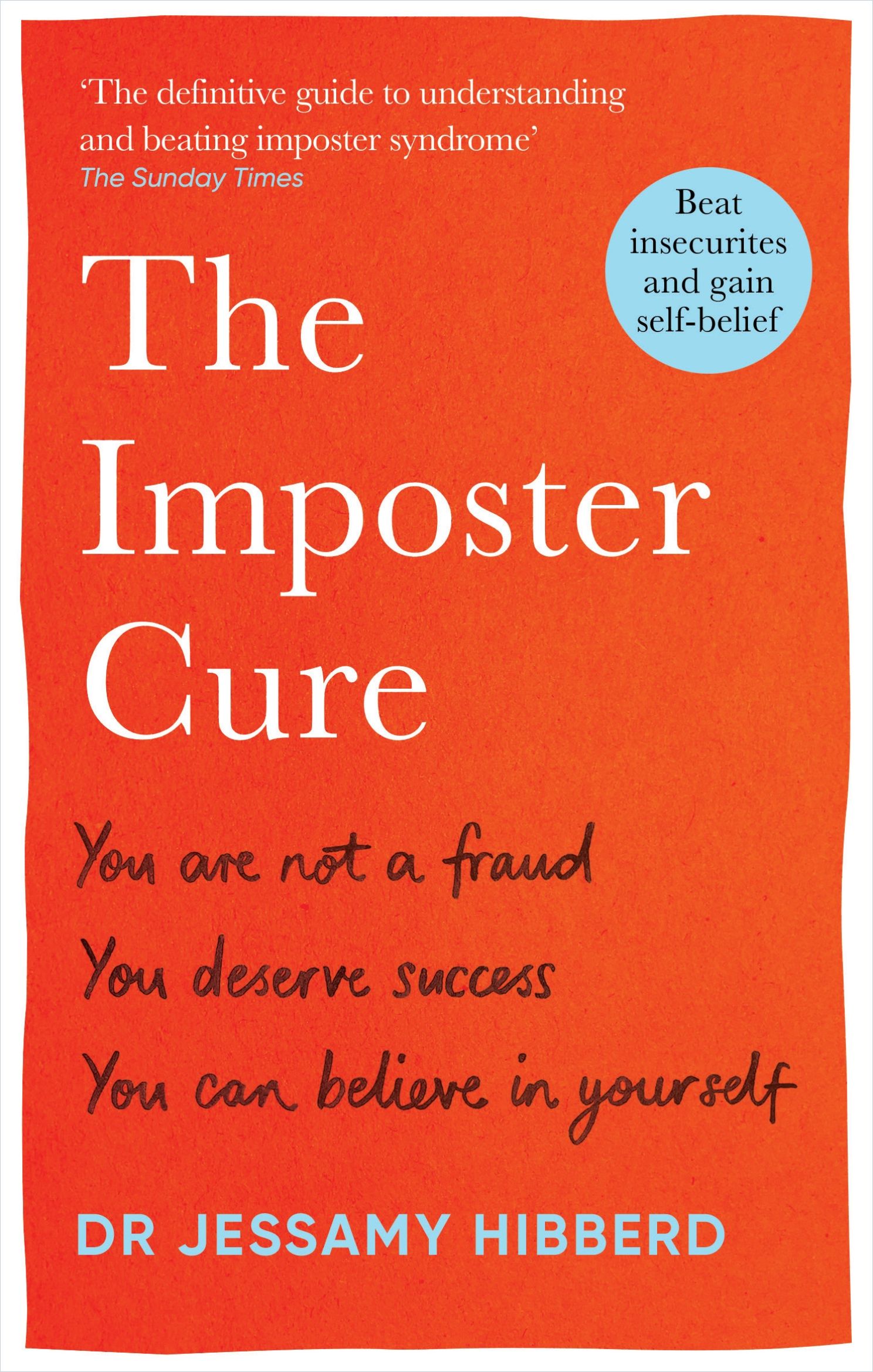Veteran author and clinical psychologist Jessamy Hibberd breaks down imposter syndrome and shows you how to escape it.

You can escape Imposter Syndrome
Clinical psychologist Jessamy Hibberd – who also wrote How to Overcome Trauma and Find Yourself Again and This Book Will Make You Happy – provides sound advice on freeing yourself from imposter syndrome, the false feeling that you’re a fraud when you are not.
First, to overcome the self-doubt that fuels imposter syndrome, reject its two main dysfunctional coping strategies: doing too much work while pursuing perfection, or avoiding challenges and procrastinating out of self-doubt. Procrastination, the evil twin of overwork, is the manifestation of avoidance. People who chronically delay starting tasks would prefer that others judge them for lax effort than for ineptitude. Long delays cause anxiety and stress, but you can reduce those negative feelings by forgiving yourself for procrastinating and moving ahead.
Pessimistic self-beliefs
Hibberd reassures those suffering from imposter syndrome that escaping their self-defeating anxiety promises rich rewards. The payoffs include release from emotional burdens, acknowledgment and acceptance of evidence that proves you’re not an imposter, a more profound ability to develop compassion, and an understanding that everyone experiences both insecurity and self-confidence.
As you ease your imposter syndrome, you may also find relief from some of its physical symptoms, which can include migraine headaches, back pain and a compromised immune system.
The Pitfall of Perfectionism
Imposter syndrome may spring from the tension between your achievements and the unachievable standards you’ve set for yourself – not external standards but self-defined unrealistic goals that leave you lamenting that you cannot reach them.
Several types of perfectionism can feed imposter syndrome. Those who are seen as natural geniuses may set impossible standards and then judge themselves accordingly, thus feeling defeated if they can’t, for example, perform a task correctly the first time they try. Soloists feel competent only when they succeed on their own. Experts feel incompetent when any question comes up that they can’t answer.Superwomen or supermen set outsized standards, push themselves to outwork everyone else and try to inhabit myriad roles, such as boss, colleague, parent or friend, without failure. Perfectionism and fear of failing are intrinsically linked. Fear drives the pursuit of perfection and increases the likelihood of failure.
Imposter syndrome was originally believed to affect a narrow sample of high achieving women, but psychologists now recognize it as far more widespread.Jessamy Hibberd
Someone who suffers from imposter syndrome may find that being asked to perform a difficult or unfamiliar task can trigger emotional distress. Some people dismiss this distress as inconsequential, while others interpret it as evidence that they are, indeed, imposters. Confident people may behave as imposters – without stress – by bluffing until they learn to overcome a new challenge.
A childhood memory of your parents discounting your accomplishments can spark imposter syndrome. However, the opposite circumstance can have a similar impact: for instance, children who received lavish parental praise for their intelligence may lose confidence as they grow older and realize that plenty of other people are intelligent, too.
A Fusion of Emotions and Reasons
Belief is a fusion of feelings and reasons, thus, Hibberd explains, negative self-beliefs are difficult to dispel because they arouse intense emotions. Under the influence of a cognitive pattern called confirmation bias, people prefer information that confirms what they already believe, even if it is harmful and self-critical. Such beliefs victimize people by heightening their sensitivity to any criticism. It makes them feel threatened and – they believe – proves their incompetence and feeds their fear of being an imposter.
Confirmation bias helps to explain the self-fulfilling nature of imposter syndrome.Jessamy Hibberd
A fine line separates helpful self-doubt from destructive insecurity. The drive for perfection stokes insecurity, dilutes your pleasure in your achievements and diminishes your appreciation for what you have accomplished. Social media contribute to the notion that people can make themselves perfect, leading many to set impossibly high standards for themselves. Chasing perfection is exhausting, but accepting fine if average outcomes may prove too unsettling for perfectionists.
People with a healthy, conscientious approach to work meet high standards without being perfectionists. They do their best to achieve their desired results while prioritizing their health and happiness. They know happy times are rare, so they treat them as precious, not permanent.
Receiving external validation, such as praise from others, matters far less in battling imposter syndrome than internally validating yourself and maintaining an inner sense of success. Reflecting on all you have accomplished can help confirmation bias recede. To support and elevate your self-appraisal, write a list of your accomplishments.
Insecurity
Confiding in friends or doing exercise you find relaxing can help you handle imposter syndrome while typical coping mechanisms, such as overworking or avoiding challenges, may not work. These “imposter twins” fuel unfounded fears. Working excessively damages your well-being and further leads you to discount your talent.
Self-criticism demotivates, lowers self-esteem and raises anxiety. Speaking to yourself unkindly and spiraling into a negative internal dialogue can erode your mood, self-compassion and resilience and undermine your goals. Many people who assess themselves harshly would never make such disparaging observations about others and then expect positive outcomes.
To counter unkind self-talk, develop self-compassion. Become acutely aware of the words you speak to yourself and decide to express a more positive self-appraisal each time.
For too long we’ve believed that self-criticism helps us get things done, when in reality it does the opposite.Jessamy Hibberd
People with imposter syndrome can accept that they’re not imposters when they find new ways to cope with insecurity other than avoidance or overwork. To adopt a new, practical approach, reassess your definition of success. Consider which work deserves most of your time and energy and what you could delegate or dismiss.
Overcoming imposter syndrome requires accepting that mistakes happen and are essential to developing resilience. Hibberd suggests workable strategies for responding to failure more productively: Accept that failure happens, is acceptable and may teach you something. Fearing failure doesn’t mean you’ll fail; often, people regret inaction more than action, even if the action doesn’t work. Work through your emotional response to disappointment and ask if you’ve learned from it or realized some other benefit. Don’t equate criticism with failure or immediately agree with a critic. Embrace helpful comments and dismiss any others. Avoid perfectionism; reject the faulty notion that every problem has one perfect solution.
People with an internal “imposter voice” tell themselves they’ve succeeded only due to their charm, luck, hard work, good timing or personal contacts. Each of these may be valid plusses, but emphasizing them over your abilities is like citing salt as the main ingredient in a delicious meal. Luck and good timing alone won’t make you successful. You need talent to make the most of such assets.
A satisfying life requires finding a slower pace of living and preserving blocks of unscheduled time. Prioritize “natural highs.” Slow down the pursuit of happiness, so you can appreciate your personal progress. Make time for activities that fulfill and relax you: listen to music, jog, get outdoors, prepare a special meal, and spend time with people you love.
Honor Yourself
After much research and self-examination, Dr. Jessamy Hibberd offers effective tactics and practical approaches for diminishing imposter syndrome and avoiding its toxic effects. She begins by describing how imposter syndrome manifests and what other syndromes it inspires. She details how various personalities put themselves into positions where they’re more vulnerable to imposter syndrome. Then she presents workable paths for escaping this insidious, toxic state of mind. She understands that suffers need to develop self-compassion and to believe their compassionate messages to themselves. The bedrock of her sound advice is her deeply informed empathy for those facing self-doubt.






